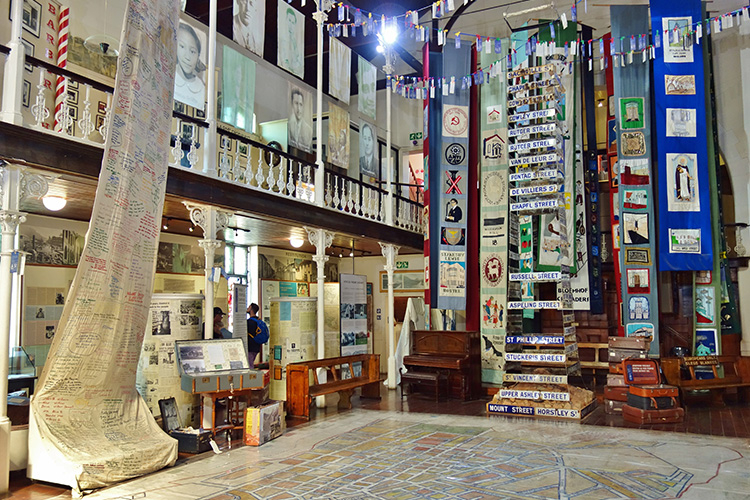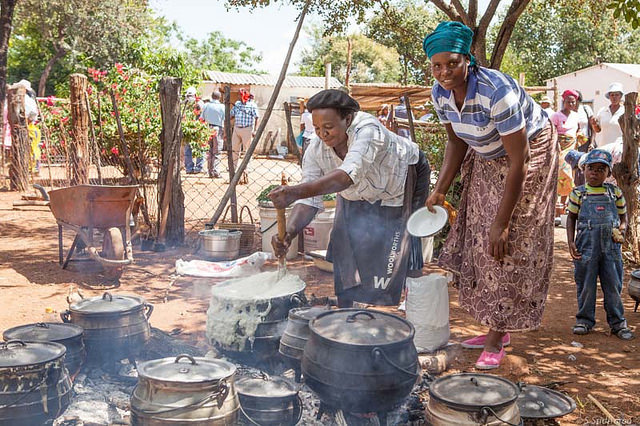Table of Contents
The 10 Best Cultural Tours In South Africa
Here are the 10 best cultural tours in South Africa and they include the following; Robben Island Museum, Soweto Township Tour, Zulu cultural village, South Africa’s cultural tours offer an opportunity to explore the roots of this diverse country and witness its captivating heritage.
The cultural tours in South Africa offers a distinctive viewpoint on the history, customs, and lively communities of the nation. These cultural trips are sure to enrich and discover your purpose of travel. whether your interests are in the customs that define South Africa’s uniqueness, its rich history, or the stories of its diverse population. Travelers looking to uncover the heart and spirit of this wonderful country will find that South Africa’s cultural tours provide an unforgettable experience, from the bustling metropolises of Cape Town, Johannesburg, and Durban to the more remote regions and historical sites.
Robben Island Museum

The Robbin Island Museum is one of South Africa’s top 10 cultural attractions. Robben Island Museum, located off the coast of Cape Town, South Africa, is a significant historical and cultural landmark that offers a unique and profound cultural tourism experience. It is widely regarded as a symbol of the human spirit’s triumph over apartheid in South Africa. The cultural tour of Robben Island is as follows:
Robben Island is well known for being the jail where anti-apartheid hero and former South African President Nelson Mandela spent 18 of his 27 years in incarceration. It was also used as a prison for political prisoners during apartheid, hence it has great historical relevance.
Former political prisoners lead guided tours of Robben Island, sharing their personal stories and insights into the island’s history. These guides provide a unique perspective, providing a thorough understanding of the hardships and challenges faced by those imprisoned. The tour also includes visits to the maximum security prison, the cell where Nelson Mandela and other political figures were held, and the prison complex, which displays and exhibits the prisoners’ experiences.
It informs tourists about apartheid and the fight for equality in South Africa in addition to showcasing the tragedies of the past. Visitors will learn about the battle, sacrifices made, and eventual victory of democracy over apartheid during the tour. There is more to Robben Island than merely its historical significance. The island’s natural beauty, which includes breathtaking views of the shore, lends a tranquil quality to the journey and serves as a location to think back on the past while taking in the surroundings.
Apart from its historical significance, Robben Island has evolved into a symbol of forgiveness and healing. The fact that formerly incarcerated people are now guides and ambassadors for the island highlights the country’s efforts to heal and unite. Robben Island’s historic structures and antiquities have been preserved as part of the island’s UNESCO World Heritage Site designation. This guarantees that subsequent generations will be able to benefit from its past.
Soweto Township Tour

Soweto Township Tour is in the city of Johannesburg. It is a cultural experience that takes you into the heart of Soweto, one of the most historic and vibrant townships in the country. This tour provides an opportunity to gain a deeper understanding of South Africa’s complex history, apartheid legacy, and the resilience of its communities. It’s known for its historic significance as the home to prominent anti-apartheid activists like Nelson Mandela and Desmond Tutu. Visiting Soweto allows you to connect with the pivotal moments of South Africa’s past.
Soweto tours are typically guided by knowledgeable locals who share their personal stories and insights into the township’s history and culture. This first-hand perspective offers a more intimate and authentic experience, allowing you to engage with the community.
A trip to the Hector Pieterson Museum, which honours the 1976 Soweto Uprising a pivotal moment in the fight against apartheid is frequently included in the tour itinerary. It offers a profound look into the youth’s sacrifices made during this crucial occasion.
Along the way, you’ll see famous locations like Vilakazi Street, which is notable for being the only street in the world to have hosted both Nelson Mandela and Desmond Tutu, the recipients of the Nobel Peace Prize. You can go to the Tutu House and Mandela House, which is now a museum.
Numerous tours also highlight neighbourhood based efforts and projects that have aided in Soweto’s growth and improvement. These initiatives demonstrate the community’s tenacity and will. Interacting with the people and getting a taste of their lifestyle encourages cross-cultural communication and understanding. It’s a chance to learn more about the people of Soweto, ask questions, and share personal experiences.
It’s a journey that will leave you with a deep appreciation for the country’s path toward democracy and the enduring spirit of its people.
Zulu Cultural Village Tour
Located in Zulu, a nation of Nguni-speaking people in KwaZulu-Natal province in South Africa, making it one of the 10 best cultural tours in South Africa. Zulu Cultural Village Tour offers a fascinating and immersive experience of the traditions, customs and life style of the Zulu people, one of the country’s largest and most culturally significant ethnic groups.
This cultural tour offers an opportunity to explore and engage with the rich heritage of the Zulu community and gain a deeper appreciation of their history and culture. for example , traditional encounters, traditional dance and music, traditional attire, cultural values, traditional meals and many more.
Discover the fascinating world of Zulu culture on a tour filled with exciting dance, music, and mesmerizing drumming. Put on traditional Zulu clothes and find out the significance behind their colourful garments.
A local guide will tell tales of legendary battles and share historical accounts that will give you a glimpse into the Zulu people’s rich past, including notable figures like King Shaka.
Experience Zulu life up close by visiting traditional Zulu homesteads and witnessing daily routines and family structures. You can also enjoy a delicious traditional Zulu meal prepared with authentic Zulu recipes showcasing the Zulu culinary heritage.
Explore the values, beliefs, and social structures that shape Zulu identity and community life, all in the picturesque rural landscapes of KwaZulu-Natal, adding a touch of beauty to your cultural exploration.
Zulu Cultural Village Tour is not only an educational experience but also an opportunity to celebrate the resilience and enduring traditions of the Zulu people. It’s a chance to appreciate their cultural diversity, artistry and storytelling, while also acknowledging their significant role in South African history and identity. This cultural tour provides a holistic view of the Zulu community’s past and present, fostering a deeper cultural connection with this remarkable ethnic group.
Apartheid Museum
The historical record of apartheid, a system of formalised racial segregation and discrimination imposed by the South African government from 1948 to 1994, is the primary focus of the Apartheid Museum. For everyone interested in learning about South Africa’s history and democratic transition, this is a must-visit location.
The displays in the museum are meant to elicit strong emotions and a sense of immersion. The museum aims to present a whole picture of apartheid, so visitors can learn about the experiences of both the oppressors and the oppressed. It draws attention to the leaders and actions of resistance in the fight for equality.
The museum uses a variety of multimedia components, such as images, videos, audio files, and interactive exhibits. These components aid in illuminating the apartheid narrative and illustrating the human and emotional aspects of the conflict.
With its assortment of historical artefacts, records, and first-hand accounts, the museum offers a genuine window into the lives of individuals who endured apartheid. Protest materials, jail doors, and artefacts associated with famous people like Nelson Mandela are examples of notable artefacts.
The museum also includes the Hector Pieterson Memorial, dedicated to the memory of Hector Pieterson, a young boy killed during the 1976 Soweto Uprising. This event marked a turning point in the anti-apartheid struggle, and the memorial pays tribute to those who lost their lives during the protest.
While the museum delves into the grim history of apartheid, it also promotes reconciliation and hope. It celebrates the eventual triumph over apartheid and the democratic transformation of South Africa.
The Apartheid Museum offers educational programs and resources for schools and groups, making it an important institution for educating future generations about South Africa’s history.
Cape Malay Cooking Tours
Cape Malay cooking tours in South Africa offer a delightful and distinctive cultural encounter that allows participants to delve into the culinary traditions of the Cape Malay community. The Cape Malays are a unique cultural group distinguished by their combination of African, Indonesian and Malaysian culinary influences. Here’s an overview of what you can expect from a Cape Malay cooking tour:
Cape Malay cuisine is a delightful fusion of flavours, combining ingredients and techniques from Southeast Asia with South African ingredients. The result is a unique and flavourful culinary tradition that reflects the multicultural heritage of South Africa.
Cape Malay cooking tours typically involve hands-on cooking workshops where you can learn to prepare traditional dishes from the Cape Malay repertoire. Skilled instructors guide you through the process, explaining the ingredients, techniques and cultural significance of each dish.
Cape Malay cuisine is renowned for its use of aromatic spices such as coriander, cumin, cardamom, and cloves. You’ll learn about the different spices and their roles in creating the unique flavours of these dishes such as bobotie (a spiced mince dish topped with an egg-based custard), bredie (a slow-cooked stew), samosas (savoury pastry parcels) and various curry dishes.
A Cape Malay cooking tour provides a delectable and culturally enriching experience that brings South Africa’s multicultural heritage to life through its flavours and traditions. It’s a chance to explore the intersection of food, culture, and history, and to take home not only new cooking skills but also a deeper appreciation for the cultural diversity that makes South Africa so special.
District Six Museum
 The District Six Museum, situated in the heart of Cape Town, South Africa, occupies the space of an old Methodist church and stands as a poignant memorial to a dark chapter in the nation’s history. Founded in 1994 by the District Six Foundation, the museum commemorates the horrific forced removals that took place during the apartheid era in the 1970s.
The District Six Museum, situated in the heart of Cape Town, South Africa, occupies the space of an old Methodist church and stands as a poignant memorial to a dark chapter in the nation’s history. Founded in 1994 by the District Six Foundation, the museum commemorates the horrific forced removals that took place during the apartheid era in the 1970s.
This museum serves as a powerful reminder of the forced displacement of approximately 60,000 residents from the diverse and vibrant District Six community, a neighbourhood that was characterized by a rich tapestry of races and cultures. The apartheid government’s policy of racial segregation led to the demolition of homes and the eradication of a once-thriving community.
Upon entering the museum, visitors are met with a striking visual representation of the district’s layout, with a vast map on the floor adorned with handwritten notes by former residents, pinpointing the locations of their former homes. These notes serve as poignant testimonies to the lives and memories that were abruptly disrupted.
The District Six Museum not only showcases the personal stories and experiences of its former inhabitants but also features a collection of historical artefacts, such as old traffic signs, exhibits of historical moments, family life displays and records of the demolition of the neighbourhood.
One of the notable former residents whose history is intertwined with District Six is the renowned jazz musician Abdullah Ibrahim, famously known as Dollar Brand. His story along with those of countless others, underscores the resilience of individuals who lived through this tumultuous period in South Africa’s history.
A visit to the District Six Museum is an emotionally charged experience that emphasizes the significance of acknowledging the past and striving for reconciliation and social justice. It stands as a testament to the enduring human spirit, a symbol of remembrance, and a call for unity, healing, and the celebration of diversity in the present day.
Cradle Of Humankind

Basotho Cultural Village
Bo-Kaap Walking Tour
 Step into the lively world of Bo-Kaap among the 10 best cultural tours in South Africa, a charming neighbourhood in Cape Town where history, diversity and a burst of colours create a one-of-a-kind experience. Tucked at the base of Signal Hill, Bo-Kaap invites you on a captivating journey through cobblestone streets and unique architecture, revealing the fascinating tales of its past.
Step into the lively world of Bo-Kaap among the 10 best cultural tours in South Africa, a charming neighbourhood in Cape Town where history, diversity and a burst of colours create a one-of-a-kind experience. Tucked at the base of Signal Hill, Bo-Kaap invites you on a captivating journey through cobblestone streets and unique architecture, revealing the fascinating tales of its past.
Shakaland Cultural Village
 Shakaland Cultural Village is a unique cultural tourist destination located in the heart of Zululand, KwaZulu-Natal, South Africa. Visitors to Shakaland Cultural Village can explore the reconstructed traditional Zulu homesteads, known as “kraals,” and witness various aspects of Zulu daily life. The village is designed to recreate a typical Zulu homestead, complete with thatched-roof huts and a central gathering area.
Shakaland Cultural Village is a unique cultural tourist destination located in the heart of Zululand, KwaZulu-Natal, South Africa. Visitors to Shakaland Cultural Village can explore the reconstructed traditional Zulu homesteads, known as “kraals,” and witness various aspects of Zulu daily life. The village is designed to recreate a typical Zulu homestead, complete with thatched-roof huts and a central gathering area.
Other Attractions In South Africa
South Africa is a country endowed with a wealth of natural beauty and cultural traditions. These are a few of South Africa’s most popular attractions:
Kruger National Park: It is one of Africa’s top game reserves, and home to an incredible variety of other animals like the Big Five i.e. lions, leopards, buffalos, elephants, and rhinos. Archaeological sites and rock paintings by the San Bushmen are another attraction available to park.
Cape Town: It is one of the most beautiful cities on the earth. This international city, nestled between a rough range of mountains and the sea is surrounded by nature for example, seeing Table Mountain, the flat-topped peak dominating the city, is one of the best things to do in Cape Town.
Durban Botanic Gardens: The oldest surviving botanical garden in Africa and the oldest public institution in Durban which is located in KwaZulu-Natal. Numerous types of plants and animals can be seen in the gardens, including an assortment of unusual cycads.
Otter Trail: It is a five day hiking route that runs from Storms River Mouth to Nature’s Valley via the Garden Route. The trail is named after the Cape Clawless Otter, which is frequently seen along the route. The Tsitsikamma Mountains and the Indian Ocean are breathtakingly visible from the hike.
Victoria Falls: Zambia and Zimbabwe are naturally divided by the Victoria Falls, a waterfall on the Zambezi River in southern Africa. It is a UNESCO World Heritage Site and regarded as one of the biggest waterfalls in the world. Activities available to visitors include white-water rafting, helicopter rides, and bungee jumping.
Budget Accommodations. These are economical choices that put affordability first. Accommodations in this category cater to travellers who want to save money on accommodations, so they can spend that money on other aspects of their trip.
Frequently asked questions
What is a cultural tour in South Africa?
A cultural tour in South Africa is a guided tour that provides an opportunity to exploring and to experience the diverse and the rich cultural heritage of the country
What are the most tourist attractions in South Africa?
Kruger National Park, Cape Town, Two ocean aquarium and South Africa National Gallery are the most tourist attractions
Conclusion, looking for a tour company to take you in your desired places for the best cultural tours in south Africa, all you need to do is to contact Kubwa five Safaris for a breath taking trips


